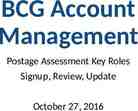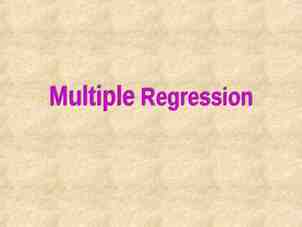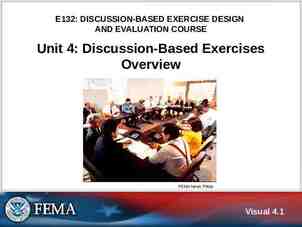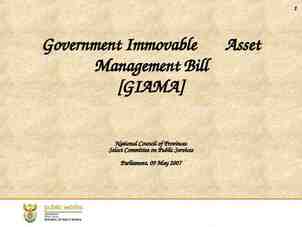Writing at Masters Level: So What’s the Difference? Dr Helen Rushforth
30 Slides289.50 KB

Writing at Masters Level: So What’s the Difference? Dr Helen Rushforth Programme Lead, MSc Advanced Clinical Practice

Aims of the Session To help you understand what is ‘different’ (and the same!) about writing at Masters level as opposed to undergraduate level To revise some of the key concepts that are central to good academic writing To help you identify where to get support to help you develop your writing skills further.

So what do you think are the differences between writing at Masters level and writing at degree level? Masters level level 7 (formerly 4) Degree level level 6 (formerly 3)

Masters Level: Academic Views ‘Using high quality information to show in depth knowledge and understanding’ ‘Examining issues in depth’ ‘Always looking at things from different perspectives’ ‘High level critical discussion’ ‘Ability to deconstruct problems’ ‘Problem solving using evidence’

Masters Level: Academic Views (cont.) ‘Critical analysis and synthesis’ The ‘so what?’ factor ‘Constructing an argument’ ‘Challenging assumptions’ ‘Taking nothing at face value’ ‘Balanced, thorough judgments and conclusions’ ‘Clear, concise writing’

Academic Levels Level What does it look like? Level 1/4 Description Opinion and research findings used to illustrate points but taken ‘at face value’ Theories and experiences described Level 2/5 Discussion Compare and contrast different research findings, opinions and experiences Level 3/6 Critical analysis View different research findings, opinions and experiences critically Emphasis on importance of ‘good’ evidence as a basis for drawing conclusions Level 4/7 Critical analysis, synthesis and evaluation In depth critical analysis of research findings, opinions and experiences used to construct an argument Justifying a particular viewpoint or conclusion as a result of ‘weighing up’ the evidence

Key concepts within the level descriptors Describe Discuss Evidence and ‘good evidence’ Critical analysis Synthesis Argument Conclusion

Description - – keep to a minimum! To state the characteristics or appearance of . A representation in words. Something that tells you what someone or something is like. Thomson (1995), Cambridge Dictionary (2010)

Description “Humans need oxygen in order to survive. In total, about 20% of the air we inhale contains oxygen, with just 0.4% of air being carbon dioxide (Marieb 2008). In contrast, Marieb goes on to explain that the air we exhale is made up of 4% carbon dioxide and around 16% oxygen. The 3.5% to 4% difference in the amount of oxygen inhaled and exhaled is what our bodies, ultimately our cells, use in order to function.”

Discussion – still key but not enough on its own When people talk about something and tell each other their ideas or opinions. Articulation of different points of view. To consider or examine. Cambridge Dictionary (2010),

Discussion – still key but not enough on its own “Piaget’s (1930) theory of child development was centred on children’s limited ability to understand other people’s point of view until they were at least seven years of age. In contrast Vygotsky (1964) challenged Piaget’s views, arguing that younger children are capable of far greater understanding than Piaget gave them credit for. With regard to language, other experts.”

Critical Thinking - Analysis ‘Detailed examination of elements’ (OED) Critiquing different viewpoints – other people’s positions, arguments and conclusions Evaluating the reliability and validity of the literature/evidence Viewing everything you read critically – not taking anything at face value Weighing up opposing arguments Structured reflection on personal experience (Cottrel 2005, Thomson 1995, Fowler 2007 )

Analysis is sometimes seen as ‘taking things apart’ ‘breaking them down’ or ‘deconstructing’ them

You could write. There are a number of seminal studies in the field of nurse led care. Greenhalgh (1994) demonstrated comparable performance by nurses and doctors when undertaking cannulation, and later Lattimer et al (2000) found that nurses could safely replace doctors in the field of telephone triage. In contrast Vine (2005) found nurse led consultations in primary care took longer and cost more, and when asked patients expressed a preference for being seen by a GP.

But you could have said this. ‘Greenhalgh (1994), in their seminal study exploring the safety of doctors replacing nurses in expanded roles concluded that ‘doctor nurse’ substitution was safe in conducting venesection and cannulation. However closer examination of the study detail reveals that the sole outcome measures considered was the length of wait for patients to recieve treatment, and the number of attempts made by each practitioner.’

And this. In contrast Lattimer et.al (2000) conducted a large scale equivalence study to determine whether it was safe for nurses to undertake ‘telephone triage’ with patients seeking a same day GP appointment. This was the first study of its kind to use a sufficiently large sample size to compare rare adverse events such as serious illness or death, and consequently their conclusions that nurse led telephone triage was safe have become a widely respected seminal study in the field of nurse led care.

Due to word limits, in depth critique might mean you have fewer references in your essay than you might have done previously – but if you have greater DEPTH and good ANALYSIS this is not necessarily a bad thing.

Critical Thinking - Synthesis ‘Combining elements into a whole’ (OED 1995) Drawing conclusions about whether arguments put forward are valid, evidence based and justifiable Consider whether arguments are realistic Deciding based on the argument, the evidence and the practice context what your point of view is or what you will recommend Present your point of view in a clear, well reasoned way with justification (from Cottrel 2005)

Synthesis reconstructs things – puts things together to reach a conclusion and make a clearer picture

.and sometimes you will be able to use your analysis of the evidence and your practice experience to synthesize a new way of looking at things. This is what we mean by ‘original thought’

Analysis and Synthesis Growing evidence from two key RCTs (Jones 2005, Brown 2007) suggests that it is safe for children’s tonsillectomies to be conducted as a ‘day case’. In contrast though, McGuigan (2009) favours an overnight stay. She argues that because haemorrhage is a rare event, sample size in these studies is too small to show whether or not the day case is actually safe. Furthermore, a qualitative study by James (2008) of 20 parents delivering home care following day case tonsillectomy, shows parents find the post operative night very stressful. Personal experience reinforces this point; one parent recently told me she set her alarm every hour to check her child was safe. Thus at the present time there is arguably insufficient evidence to support the case for day case tonsillectomy in children.

So what you are doing is using discussion, analysis and synthesis to construct an ARGUMENT.

Characteristics of an Argument Position – author has a position that they want the audience to accept (may or may not be stated at the beginning) Reasons (propositions) are given to support (justify) the author’s position Line of reasoning is the logical ‘unpacking’ of the reasons why ‘on balance’, considering everything, this argument (viewpoint) is justifiable Conclusions – not just a summary of the essay but makes the author’s position clear. You will often have several smaller arguments/conclusions, leading to one overall conclusion Adapted from Cottrel (2005:47) and Fowler (2007)

What is Good Evidence? Contemporary research evidence – valid and reliable Seminal research evidence Published in peer reviewed journals Primary research as opposed to secondary citation But don’t overlook the value of other forms of evidence.

Evidence is more than research. Expert opinion – so some ‘opinion pieces’ may be ‘good evidence Patient/client/carer perspectives Your practice experiences .are also important provided they are used judiciously The notion of the ‘hierarchy of evidence’ is key here.

Practice Experience Always valuable if used to help you make sense of an argument or a discussion point. Practice experience may help to further support your argument. .or it may lead you to challenge a theoretical perspective – the ‘theory – practice gap’ But either way it enables you to link literature and clinical experience Fowler (2007)

Smith and Brown (2010), and Evans (2011), both conducted large scale RCTs which show the benefits to healing time of leaving paediatric surgical wounds exposed rather than covered following surgery. However, personal experience of children’s distress at seeing their wounds and wanting ‘a plaster on it’ or it ‘taken away’ suggest that from a psychological perspective this approach may be less ideal. Personal preference is thus an important factor to consider, particularly as in both studies the difference in speed of wound healing is modest, and infection rates do not differ.
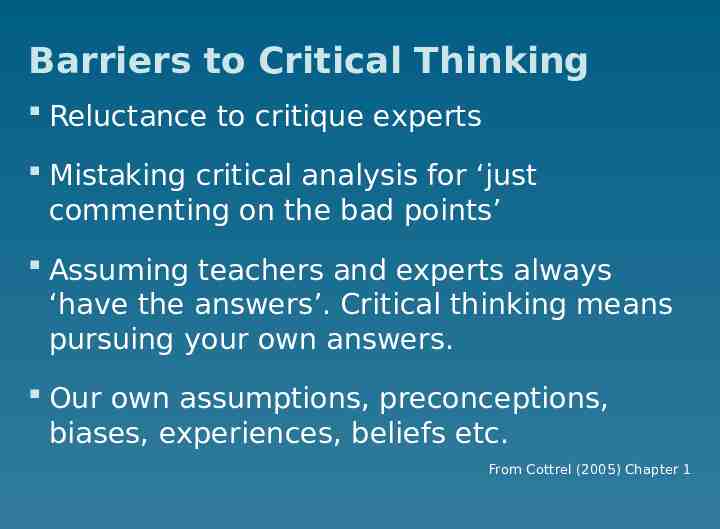
Barriers to Critical Thinking Reluctance to critique experts Mistaking critical analysis for ‘just commenting on the bad points’ Assuming teachers and experts always ‘have the answers’. Critical thinking means pursuing your own answers. Our own assumptions, preconceptions, biases, experiences, beliefs etc. From Cottrel (2005) Chapter 1

Where to get support Module leader – always the first point of contact for support with an assignment – will offer group and 1:1 support Programme (award) leader or pathway leader (i.e. Academic tutor) Support if needed with academic writing Referral to student learning advisor if required (SLA) Referral to student support for assessment of learning needs Library service

References Atherton J S (2011) Doceo: Writing at Master's Level [On-line: UK] retrieved 26 September 2011 from http://www.doceo.co.uk/academic/m writing.htm Cambridge Dictionary On Line (2010) http://dictionary.cambridge.org/ accessed 23/9/10 Cottrel, S. (2005) Critical Thinking Skills, Basingstoke, Palgrave Macmillan. Dictionary.com (2010) http://dictionary.reference.com/browse/discuss accessed 23/9/10 Fowler,J. (2007). Thinking and Writing at Masters Level: A Reflective Passage, British Journal of Nursing, 16, 14, 887-890. Queen’s Univesrity, Belfast. (2011). Academic Writing. http://www.qub.ac.uk/schools/SchoolofEducation/ProspectiveStudents/Post graduateTaught/AcademicWriting/ . Accessed 26/9/11. Thomson,D (1995), The Pocket Oxford Dictionary, New York, Oxford University Press.

